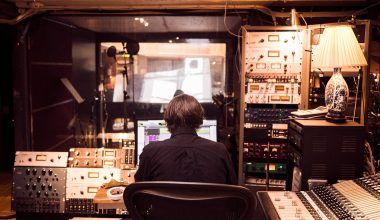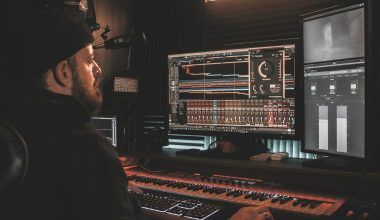Breaking into the music industry as a producer can be both an exciting and challenging journey. As a producer, you play a crucial role in shaping the sound and direction of music. Whether you’re passionate about pop, hip-hop, EDM, or any other genre, understanding the industry and honing your craft is key to success. This guide will explore the essential steps to help you navigate the music industry and establish yourself as a successful producer.
Understanding the Role of a Music Producer
A music producer is responsible for overseeing the recording and production process of a track or album. This includes arranging, composing, mixing, and sometimes mastering the music. Producers work closely with artists to bring their musical vision to life. Understanding the nuances of various genres, staying up-to-date with the latest trends, and having a strong grasp of music theory are all important aspects of the role.
Key Responsibilities
- Arranging and Composing: Crafting the structure and elements of a song is a fundamental aspect of a producer’s job. This involves creating the instrumental tracks, harmonies, and overall layout of the music.
- Recording: Producers often oversee the recording process, ensuring that the artist’s performance is captured effectively. This may involve setting up microphones, managing studio sessions, and making real-time adjustments.
- Mixing: Mixing is the process of balancing the various elements of a track, such as vocals, instruments, and effects, to create a cohesive sound. This step is crucial for ensuring that each component is heard clearly and contributes to the overall feel of the track.
- Mastering: The final stage in music production, mastering involves fine-tuning the track to ensure it sounds polished and professional across all playback devices.
Essential Skills and Tools
To become successful in the music industry as a producer, you need to develop a diverse set of skills. These include technical proficiency, creative abilities, and strong communication skills. The combination of these skills will help you navigate the complexities of the music production process and work effectively with artists and other industry professionals.
Technical Skills
- Digital Audio Workstations (DAWs): Familiarize yourself with popular DAWs like Ableton Live, Logic Pro, FL Studio, and Pro Tools. These tools are essential for recording, editing, and producing music. Each DAW has its unique features and workflow, so it’s beneficial to experiment with multiple platforms to find the one that suits you best.
- Sound Design: Understanding how to create and manipulate sounds is crucial. This includes knowledge of synthesizers, samplers, and effects. Being adept at sound design allows you to craft unique sonic textures that define the mood and atmosphere of a track.
- Mixing and Mastering: Learn the art of mixing and mastering to ensure your tracks sound professional. This involves using equalization, compression, reverb, and other audio processing techniques to enhance the quality of the recording.
Creative Skills
- Music Theory: A solid understanding of music theory will help you create harmonically and melodically pleasing tracks. This knowledge enables you to craft compelling chord progressions, melodies, and arrangements that resonate with listeners.
- Songwriting: The ability to write and structure songs is invaluable. As a producer, you may be involved in crafting lyrics, melodies, and song structures that align with the artist’s vision.
- Creative Vision: Develop a unique sound and style that sets you apart from other producers. This distinctiveness can be a significant factor in attracting artists and projects that align with your artistic sensibilities.
Communication Skills
- Collaboration: Working with artists, musicians, and other producers requires strong communication and teamwork skills. Being able to articulate your ideas clearly and listen to the needs and feedback of others is essential for a successful collaboration.
- Networking: Building relationships within the industry is key to finding opportunities and growing your career. Networking can lead to collaborations, job opportunities, and valuable connections that can help advance your career.
Building Your Portfolio
A strong portfolio is essential for showcasing your skills and attracting potential clients. Start by producing your own tracks and collaborating with local artists. This will help you gain experience and build a diverse body of work. A well-rounded portfolio demonstrates your versatility and ability to work across different genres and styles.
Steps to Build Your Portfolio
- Create a Demo Reel: Compile a selection of your best work to showcase your range and versatility. Include a variety of genres and styles to demonstrate your adaptability and breadth of skills.
- Collaborate with Artists: Partner with emerging artists to produce tracks. This will help you gain experience and expand your network. Collaborations can also provide valuable learning experiences and help you refine your production techniques.
- Remix Popular Songs: Remixing popular tracks can help you gain visibility and showcase your unique take on existing music. This can be an effective way to attract attention and build a following.
Networking and Industry Connections
Building a strong network is crucial for breaking into the music industry as a producer. Attend industry events, join music producer forums, and connect with other producers, artists, and industry professionals. Networking can open doors to new opportunities, collaborations, and resources that can help you grow your career.
Networking Tips
- Attend Industry Events: Participate in music conferences, workshops, and networking events. These gatherings provide opportunities to meet industry professionals, learn about the latest trends, and gain insights into the business side of music production.
- Join Online Communities: Engage with online forums and social media groups focused on music production. These platforms can be valuable for sharing knowledge, finding collaborators, and staying informed about industry developments.
- Collaborate with Other Producers: Working with other producers can lead to new opportunities and insights. Collaborative projects can broaden your skill set and expose you to different approaches and techniques.
Marketing Yourself as a Producer
In the competitive world of music production, it’s essential to market yourself effectively. Develop a strong personal brand, create an online presence, and promote your work through various channels. Effective marketing can help you stand out in a crowded field and attract potential clients and collaborators.
Personal Branding
- Create a Unique Image: Develop a distinctive style and brand identity that reflects your music and personality. This includes creating a memorable logo, choosing a consistent color scheme, and crafting a compelling narrative about your journey as a producer.
- Build a Professional Website: Showcase your portfolio, services, and contact information on a well-designed website. A professional online presence is crucial for making a positive first impression and providing a central hub for your work.
Online Presence
- Social Media: Use platforms like Instagram, Twitter, and Facebook to share your work and connect with fans and industry professionals. Regularly posting updates, behind-the-scenes content, and promotional material can help you engage with your audience and build a following.
- Music Streaming Platforms: Upload your tracks to platforms like SoundCloud, Spotify, and YouTube to reach a wider audience. These platforms allow you to showcase your work, attract listeners, and potentially generate income through streams and downloads.
Promotion Strategies
- Email Marketing: Build an email list to keep fans and industry contacts updated on your latest releases and projects. Regular newsletters can help you maintain a connection with your audience and promote new music, events, and collaborations.
- Press Coverage: Reach out to music blogs and publications to feature your work. Press coverage can provide valuable exposure and credibility, helping you reach a broader audience and establish yourself as a serious producer.
Finding Opportunities in the Music Industry
As you establish yourself in the music industry as a producer, seek out opportunities to work with artists, labels, and other industry professionals. The more you engage with the industry, the more likely you are to discover exciting projects and collaborations.
Gigs and Projects
- Freelance Work: Offer your production services on a freelance basis to gain experience and build your portfolio. Freelancing allows you to work on a variety of projects and develop your skills across different genres and styles.
- Internships: Consider internships at recording studios or music production companies to gain industry experience. Internships can provide valuable hands-on experience, mentorship, and connections that can help you advance your career.
Connecting with Labels
- Submit Demos: Reach out to record labels with your demo reel and portfolio. Highlight your unique sound and strengths. Submitting demos to labels can lead to opportunities for production work, remixes, and collaborations with signed artists.
- Networking Events: Attend events where label representatives are present to make connections and pitch your work. Building relationships with label staff can help you stay informed about upcoming projects and opportunities.
Staying Updated with Industry Trends
The music industry is constantly evolving, with new trends, technologies, and genres emerging regularly. Staying informed about these changes is crucial for maintaining relevance and growing your career as a producer. Keeping up with industry trends can also inspire new creative ideas and help you stay competitive.
Trends to Watch
- Genre Fusion: Experiment with blending different genres to create innovative sounds. Genre fusion is becoming increasingly popular, with artists and producers exploring new ways to combine elements from different musical styles.
- New Technologies: Keep up with advancements in music production technology, such as AI-powered tools and virtual reality experiences. Emerging technologies can offer new creative possibilities and streamline the production process.
- Streaming and Distribution: Understand the latest trends in music streaming and distribution platforms. Streaming continues to be a dominant force in the music industry, and understanding how to optimize your releases for these platforms can help you reach a broader audience.
Conclusion
Getting into the music industry as a producer requires a combination of technical skills, creative abilities, and strong networking. By building a diverse portfolio, marketing yourself effectively, and staying updated with industry trends, you can carve out a successful career in music production. Remember, persistence and passion are key to making your mark in the industry. Keep honing your craft, building your network, and exploring new opportunities. With dedication and hard work, you can achieve your goals and thrive as a music producer.
For further reading, explore these related articles:
- The Role of Autotune in the Music Industry: A Deep Dive
- Top 10 Content Marketing Ideas for Musicians to Boost Your Brand
- Data Science in Music Industry: Revolutionizing the Future of Music
For additional resources on music marketing and distribution, visit Deliver My Tune






